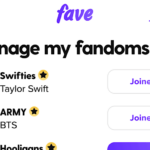Table of Contents

Photo: Sulli, Beyonce and Taylor Swift/Bigstock Photo
The suspected suicide of South Korean K-pop star Sulli* (born Choi-Jin-ri) last month has led to calls for more online regulation and a greater emphasis on protecting the privacy of performers in the East Asian country. The singer and actor, who had suffered years of online abuse from male fans operating anonymous accounts will be the subject of a proposed bill, tentatively titled ‘’Sulli’s law.’’ Politicians are hoping to present their ideas to the Korean national assembly as early as next month, with the public demand for change showing no sign of abating.
*Hollywood Insider would like to pay our respects and give our condelences to Sulli’s family. Rest in peace Sulli.
The proposed law will look to counter hate-speech by calling for an end to anonymous accounts, requiring all users of domestic social media platforms to register their full names. But could such sweeping legislation actually work, or would it simply exasperate the problem?
Toxic Fandom’s Cult-ish Origins Are Partly Responsible For Online Abuse
‘Sulli’ was targeted because she refused to conform to patriarchal notions on how a female performer should ‘present’ in Korean society. There is a belief amongst some male K-pop fans that female artists should adopt personas that imply both ‘sexual inexperience’ and ‘availability.’ Sulli subverted these sexist tropes and sadly, she suffered as a result.
Ownership is a keyword, here. Fans, or followers, are increasingly encouraged by marketeers to support and identify with a particular celebrity as a brand they have a personal connection to on social media. A brand that meets certain expectations. But when you apply this kind of logic to an individual, who unlike a pair of sneakers has thoughts, feelings, and motivations of their own, things can quickly spiral out of control and become increasingly cult-ish.
As journalist Aaron Cooper points out, “Have you ever noticed how the most dedicated fans of an artist have a name? Taylor Swift’s ‘Swifties’… Beyonce’s ‘BeyHive.’ Recognizing yourself as part of a labelled fandom means you have mentally subscribed.”
Cooper goes on to add that “you (the fan) are now part of an exclusive community of like-minded individuals and anyone not in that community isn’t a ‘real’ fan.”
It’s this ‘us vs them’ collectivism that often breeds such toxic environments, where the fan can easily become a fanatic, struggling to understand that celebrities are not commodities, and are under no obligation to look, behave, and adhere to whatever expectations you have of them.
Why Increased Censorship Could Actually Make Things Worse
The desire to seek out the most practical, the most painless solution is understandable, especially when it’s in response to something as painful as the loss of a life. And on paper, increased censorship across major platforms seems feasible, but that doesn’t necessarily make it the right way to go. If we ban people who hold controversial views from using mainstream platforms, we run the risk of creating online martyrs, in a manner of speaking. Underdogs who can generate support for their views, regardless of how twisted or hateful they maybe by playing the victim card; the lone warrior standing up for free speech against corporate giants like Facebook and Twitter. For some, the idea of sticking it to the man is simply too big a temptation to resist.
It’s also likely that a ban would simply end up driving these people underground and on to smaller platforms which they could populate in ever-increasing numbers, free from prying eyes, and able to spread hateful views without much fear of repercussion. Would it not make more sense to keep these people in public view, where their activities can be monitored and their views called-out?
But If Passing New Laws Won’t Prevent Hate-Speech, What Will?
It’s a depressing thought, but it’s quite likely that eradicating hate-speech altogether may prove impossible; certainly in the short term. The internet is simply too vast and too nebulous, meaning people will always find an outlet to voice their opinions.
The best strategies for combating online abuse generally involve education, which is rarely a short term fix. We’ve all heard the phrase ‘don’t feed the troll,’ but by teaching people to use disabling techniques rather than simply ignoring instances of online abuse in the hope the perpetrators will give up, we can actually be more proactive in diffusing volatile situations.
Counter Speech Can Be A Valuable Weapon
People can be encouraged to respond to trolls by using logical arguments to pinpoint flaws, and by promoting shared values with the use of hashtags, enabling others to join a particular thread and denounce hateful comments. This technique, often referred to as counter speech, has proved to be an effective tool because it not only encourages people to support each other, but it can also speak directly to the perpetrators of online abuse, encouraging them to rethink their views.
Education can be used as a long term strategy to change minds and leave the public better informed. In an article for Reuters, writer Sherif Elsayed-Alie perhaps puts it best:
‘’Whether it is through school programs, or campaigns on social media itself, the only viable long-term way to reduce racism, sexism and bigotry online is by understanding and addressing the roots of discrimination and hate in our societies.’’
Reactionary changes in the law, regardless of how well-intentioned they may be, won’t solve the problem.
By Kian Northcote
More Interesting Stories From Hollywood Insider
– Life Lessons From Joaquin Phoenix’s ‘Joker’: The Clown Prince Of Crime – Isn’t It Time To Remove Stigma From Mental Health Issues?
– Watch: ‘Reaction From Stars’ On Making Of ‘Joker’ From Joaquin Phoenix & Director Todd Phillips
– WATCH: “Is Climate Change An Urgent Issue Or Not A Worry For 100 Years?” Do You Support Leonardo DiCaprio & Greta Thunberg? – Hollywood Insider’s ‘Messages From America’ – Episode 7
– The Name Is Bond….. Female Bond? Could Daniel Craig’s Successor Be Priyanka Chopra, Emilia Clarke Or Lashana Lynch After ‘No Time To Die’?
– A Tribute To The Academy Awards: All Best Actor/Actress Speeches From The Beginning Of Oscars 1929-2019 | From Rami Malek, Leonardo DiCaprio To Marlon Brando & Beyond | From Olivia Colman, Meryl Streep To Bette Davis & Beyond
– Timothée Chalamet Utilizes His Platform To Save People From Drug Abuse
– FACT-CHECKED Series: Zendaya And 15 Things You Might Not Know About The Star Of ‘Euphoria’, Tom Holland’s Leading Lady In “Spider-Man: Far From Home’ And Next Starring With Timothée Chalamet In ‘Dune’
– WATCH: “If Your Child Told You They Were Gay/Lesbian, What Would You Do?” – Prince William Confirms He Would Completely Accept His Gay Children – Hollywood Insider’s ‘Messages From America’ – Episode 6
– FACT-CHECKED Series: Keanu Reeves – 12 Revelations About The Star Of ‘Matrix’, ‘John Wick’ & ‘Toy Story 4′ – Did His Close Friend River Phoenix Predict Reeves’ Super Stardom?
– Why Queen Elizabeth II Is One Of The Greatest Monarchs | Her Majesty Queen Elizabeth II Of United Queendom Of Great Britain & Northern Ireland
– Voice Of A Teen: The Frightening New Reality Children Face In Response To School Shootings & Warning Signs
– LGBTQ+ Representation In Film/TV: From The First Romantic Film In 1919 Based On A Gay Love Story To Where We Must Go
– Priyanka Chopra Hopes Media Stops Turning Online Trolls’/Bullies’ Comments Into News
– Watch: ‘Reaction From Stars’ On Making Of ‘Bombshell’ From Charlize Theron As Megyn Kelly, Nicole Kidman, Margot Robbie And More

Kian is contributing to Hollywood Insider due to his passion for important issues that need to be highlighted. He is a film grad from the UK, and is particularly passionate about sci-fi. He also helps new writers hone their talents by providing tips and tutorials.








